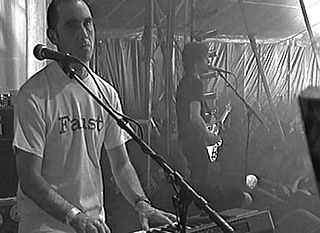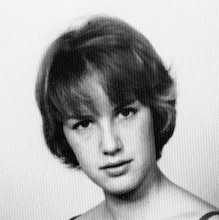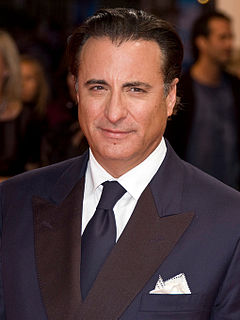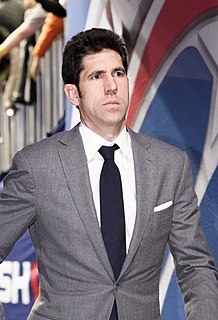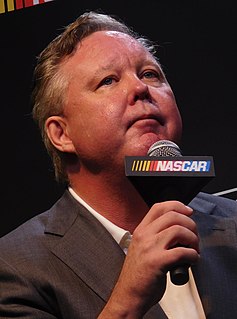A Quote by Thighpaulsandra
The thing I've learned is it's good to restrict your palette somewhat. I will try and, say, use two or three instruments on one track. You learn, after a while, they're all good at certain things and other things fall outside of the natural areas they work well in, so I tend to stick with what they do best.
Related Quotes
There are only three things to say about cocaine. One, there is no such thing as enough. Two, it will never be as good as the first time. Three, those first two facts constitute a tragedy of expense in ways that can't be experienced unless you've had cocaine. ... Your brain will settle into a puddle around your sinuses and you will die.
There were a lot of lessons of production to be learned. On the page, the biggest thing you learn on any TV show is how to write to your cast. You write the show at the beginning with certain voices in your head and you have a way that you think the characters will be, and then you have an actor go out there, and you start watching dailies and episodes. Then, you start realizing what they can do and what they can't do, what they're good at and what they're not so good at, how they say things and what fits in their mouth, and you start tailoring the voice of the show to your cast.
My mind goes really quickly and I tend to talk really fast, as you've probably heard, I sometimes lose track of my syntax, as I'm talking that fast. The only thing I try to do, well, it's slow down, but also I do something when I'm reading that's similar to when I'm writing a section, which is to really try to imagine you on the other side, in a certain way, as an intelligent, sympathetic presence who's rooting for me to tell you a good story.
In my ninety-plus years, I have learned a secret. I have learned that when good men and good women face challenges with optimism, things will always work out! Truly, things always work out! Despite how difficult circumstances may look at the moment, those who have faith and move forward with a happy spirit will find that things always work out.
I think the first film you do with your instincts because you haven't learned with another director or you haven't worked on other films, so you tend to do things your own way. I think what I learned the most was to take your time, to try to be less rushed into things and have some distance with what you're doing.
One piece of advice I have is: Want something else more than success. Success is a lovely thing, but your desire to say something, your worth, and your identity shouldn’t rely on it, because it’s not guaranteed and it’s not permanent and it’s not sufficient. So work hard, fall in love with the writing — the characters, the story, the words, the themes — and make sure that you are who you are regardless of your life circumstances. That way, when the good things come, they don’t warp you, and when the bad things hit you, you don’t fall apart.
These are the things I learned: share everything, play fair. Don't hit people. Put things back where you found them. Clean up your own mess. Don't take things that aren't yours. Say you're sorry when you hurt somebody. Wash your hands before you eat. Warm cookies and cold milk are good for you. Live a balanced life. Learn some and think some and draw some and paint and sing and dance and play and work some every day. Take a nap every afternoon, and, when you go out into the world, watch for traffic, hold hands, and stick together.
You learn, of course, when you're working with something good, but you also can learn when you're working with things that are not good. You can see the reasons they're not good. I would sometimes suggest what could be done, but essentially say "It isn't worth the bother." So I learned from that process.
You make good work by (among other things) making lots of work that isn't very good, and gradually weeding out the parts that aren't good, the parts that aren't yours. It's called feedback, and it's the most direct route to learning about your own vision. It's also called doing your work. After all, someone has to do your work, and you're the closest person around.
A lot of things I try to instill in my children comes off of what I've learned from my parents. First of all, you have to lead by example. You can't say one thing and behave another way. Kids learn more from watching you in life than what you say to them. So I try to be the best example I can be to them.
